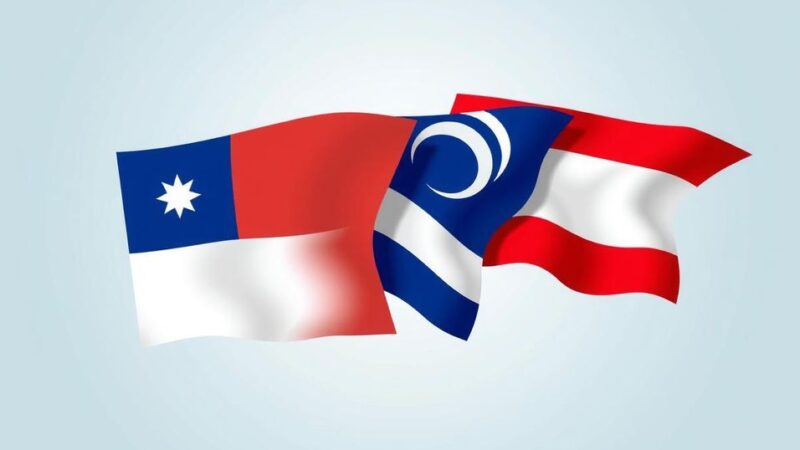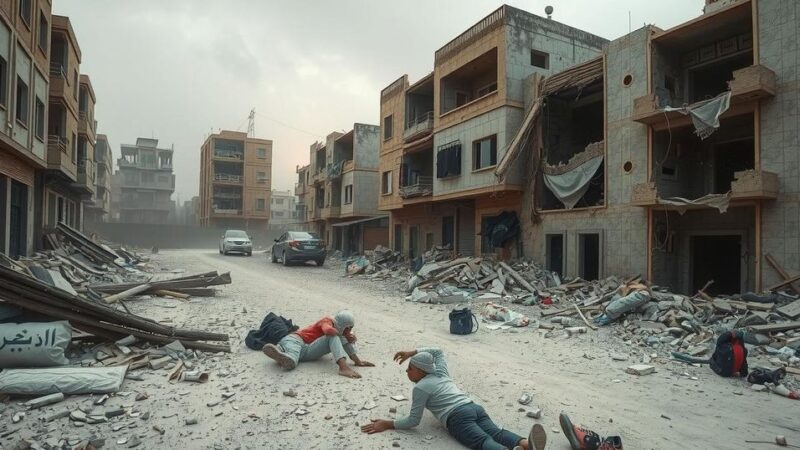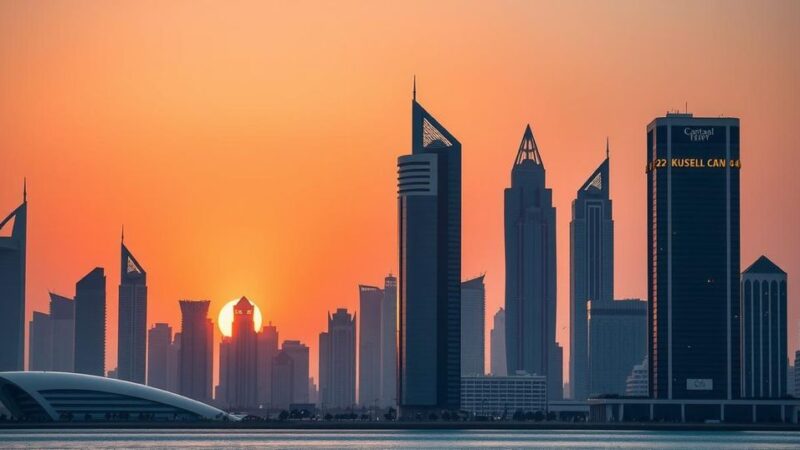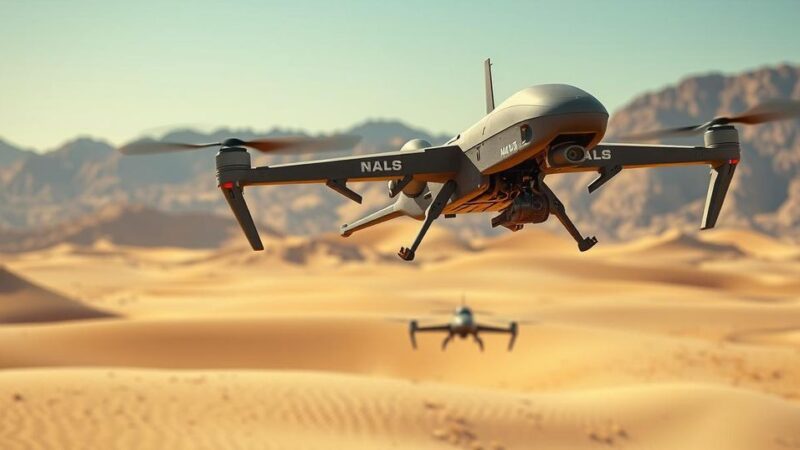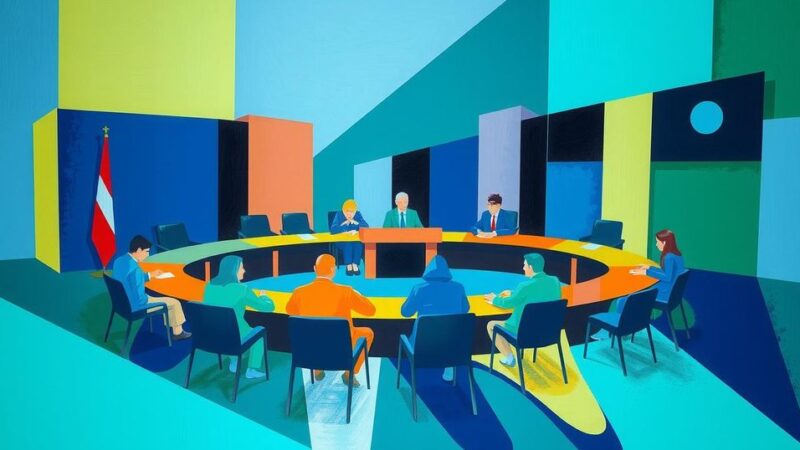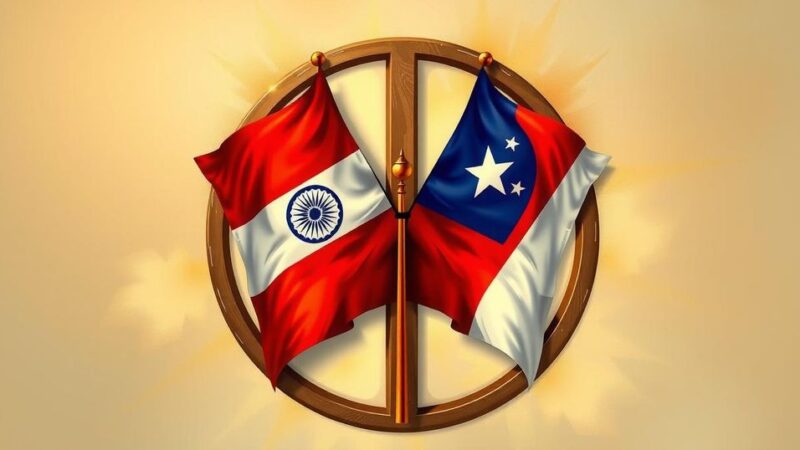The Democratic Republic of Congo faces a deepening humanitarian crisis, exacerbated by geopolitical tensions and military conflicts. Under-resourced assistance efforts have left millions in need. Diplomatic efforts are underway, but skepticism about their effectiveness remains high. The ongoing political landscape reflects a disregard for humanitarian imperatives, indicating a challenging future for governance and stability in the DRC.
The Democratic Republic of Congo (DRC) is currently facing a worsening humanitarian crisis, exacerbated by the recent seizure of Goma and Bukavu by the Rwanda-backed M23 militia. Even prior to these events, assistance was scarce, with fewer than 13% of the eleven million people in need receiving aid. The International Rescue Committee has raised alarms about deteriorating health and sanitary conditions, particularly in eastern Congo, where cholera cases have surged due to inadequate sanitation resources.
The geopolitical landscape remains troubling, as the Southern African Development Community has withdrawn its stabilization mission. This decision was not due to achieving objectives but rather a reluctance to incur further casualties among their forces, underscoring the Congolese government’s precarious situation. The administration in Kinshasa exhibits signs of panic, disorganization, and concerns over potential coups.
Initial hopes emerged with Angola’s offer to mediate direct talks between the DRC government and the M23, prompted by shifting dynamics in regional support. Congolese President Tshisekedi, once resistant to negotiations, may have altered his stance amidst crumbling international support and signals from U.S. envoy Ronny Jackson. Despite discussions about potential deals linking minerals and security assistance, American commitment to increased military involvement seems unlikely, given the corruption-riddled and unstable business environment in the DRC.
However, optimism for these talks has diminished quickly, particularly after the M23 backtracked on attending due to European Union sanctions imposed on Rwanda. Rwandan President Kagame’s responses have included fierce criticism of the sanctions as “neo-colonial interference” and severing diplomatic ties with Belgium, further complicating a delicate situation.
Recent discussions mediated by Qatar between Kagame and Tshisekedi resulted in a renewed pledge for a ceasefire, although past similar commitments have often been ignored. Lacking clear strategies for implementing and monitoring ceasefires raises doubts about the sincerity of these agreements. The Rwandan government continues to push its agenda, while the Congolese administration narrowly focuses on survival amid chaos.
This current geopolitical climate, influenced by leaders like Russian President Vladimir Putin and former U.S. President Donald Trump, appears to disregard humanitarian concerns and promote a resurgence of territorial ambitions. Unfortunately, neither the present governance nor any imposed alternatives promise an improved scenario for the DRC or its populace.
The situation in the Democratic Republic of Congo presents a dire humanitarian crisis worsened by political instability and military conflicts. Despite attempts at diplomacy, including proposed negotiations mediated by Angola, the path forward remains uncertain. The disengagement of regional support and continued internal strife highlight the urgent need for effective governance and genuine international cooperation to alleviate the suffering of the Congolese people and restore stability in the region.
Original Source: www.cfr.org

